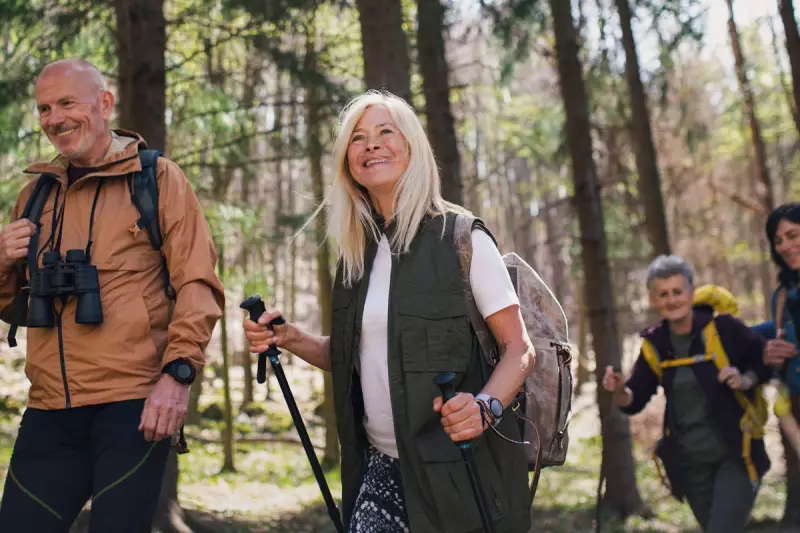
In an era captivated by health and longevity, a multi-million pound industry promises cutting-edge solutions to prevent ageing. However, experts reveal that the secret to a longer life may be simpler than we think, lying in everyday lifestyle choices that can significantly slow our biological clock.
Understanding Your Two Ages
When we discuss age, we typically refer to chronological age – the number of years you have been alive. But we also possess a biological age, sometimes called our 'true age' or 'internal body age'. This crucial metric reflects how well your body's internal systems are functioning by examining signs of ageing within your cells, blood, and DNA.
Research strongly indicates that your biological age, more than your chronological age, is linked to your overall lifespan. Consider two people both aged 60 chronologically; the individual with the younger biological age is statistically more likely to live longer.
Measuring your biological age has become increasingly accessible through epigenetic testing. This process, which can be done at home with a simple saliva sample, analyses DNA in a lab to provide insights into your body's internal processes. The lifestyle decisions we make daily directly influence this biological age, meaning our longevity could truly be in our own hands.
Five Evidence-Backed Ways to Reduce Your Biological Age
1. Get Moving to Turn Back Time
Staying physically active and exercising regularly throughout life reduces the risk of death from all causes, directly boosting longevity. Crucially, it's never too late to start.
One study found that sedentary individuals who began an eight-week exercise programme – involving 60-minute workouts done three times a week – reversed their biological age by approximately two years. A mix of strength and endurance exercises performed three to four times weekly, with sessions as brief as 23 minutes, has also been shown to significantly slow ageing.
Exercise exerts its influence through a process called DNA methylation, which controls whether specific genes are activated or deactivated. As we age, our genes naturally begin to switch off, leading to visible signs like wrinkles and grey hair. Exercise helps slow these processes, ensuring the genes responsible for vital bodily functions remain active for longer.
2. Fuel Your Body for Youthfulness
Making healthier food choices directly lowers your biological age, with an even more pronounced effect in people living with chronic disease or obesity.
A study involving nearly 2,700 women demonstrated that adopting healthier eating patterns for 6-12 months was a key factor in maintaining a more youthful biological state. This dietary shift was shown to slow ageing by an average of 2.4 years.
The recommended diet includes eating more fruits, vegetables, whole grains, nuts, legumes, fish, lean proteins, and healthy fats like oil, while reducing intake of red meat, saturated fat, added sugars, and sodium. A well-balanced diet provides antioxidants, vitamins, and anti-inflammatory compounds that aid cellular repair and reduce stress on our DNA, also influencing the beneficial process of DNA methylation.
3. Prioritise Restorative Sleep
Sleep stands as one of the strongest predictors of healthy ageing because it impacts nearly every system in the body. Good quality sleep allows the body to repair DNA, restore hormonal balance, reduce inflammation, and clear cellular waste, helping the immune, metabolic, and nervous systems stay youthful and resilient.
A comprehensive review confirmed that sleep quality is directly associated with the pace of ageing. Individuals who sleep less than five hours per night face a significantly increased risk of age-related diseases such as diabetes, heart disease, cancer, and dementia.
Furthermore, a large UK study of nearly 200,000 participants discovered that those working shifts, particularly night shifts, had a biological age around one year higher than their counterparts working standard hours.
4. Eliminate Unhealthy Vices
Habits like vaping, smoking, and drinking alcohol are among the most powerful and consistent accelerators of the ageing process.
Smoking, for instance, is shown to rapidly age the lungs by up to 4.3 years and the airway cells by nearly five years. Similarly, a study of 8,046 adults aged 30–79 found that consuming any amount of alcohol was linked to accelerated biological ageing, with higher consumption leading to faster ageing.
These habits speed up biological ageing by directly damaging DNA, increasing inflammation, and overloading cells with stress. This forces the body and its organs to work harder, causing them to age more quickly.
5. Master Your Mental State
Effective stress management is crucial for longevity. Research indicates that the ability to regulate emotions and manage stress levels predicts age acceleration. Another study found that working more than 40 hours per week on average increased biological age by two years, likely due to associated stress.
Stress can directly accelerate biological age by affecting hormonal responses, damaging DNA, and reducing immunity. It can also indirectly influence other age-accelerating factors like diet, sleep, and substance use. This underscores the importance of developing positive coping mechanisms to manage stress effectively.
The Bigger Picture on Ageing
A growing body of research suggests that factors such as loneliness, exposure to extreme heat and cold, air pollution, and living in deprived areas can also influence how we age.
It is important to note that the impact of these factors may vary depending on the individual, their genetics, the duration of their lifestyle habits, and other contextual elements. Nevertheless, this research provides powerful insight into how altering even small daily habits can profoundly improve health and well-being, and in some cases, genuinely turn back the biological clock.
This article is based on findings from Henry Chung, a Lecturer at the University of Essex's School of Sport, Rehabilitation and Exercise Sciences, and Charlotte Gowers, a Lecturer in Psychology, Sport and Sensory Science at Anglia Ruskin University.





